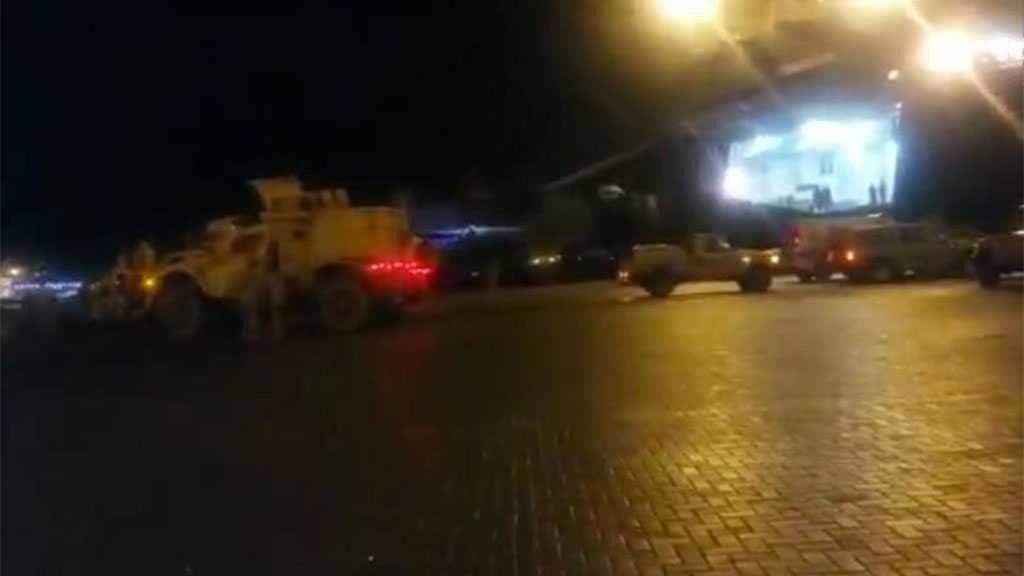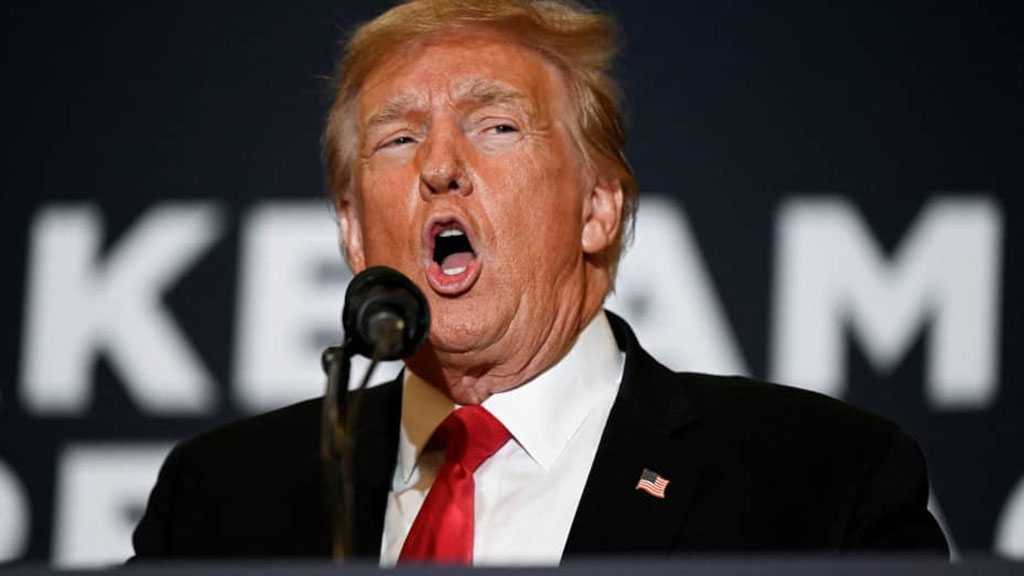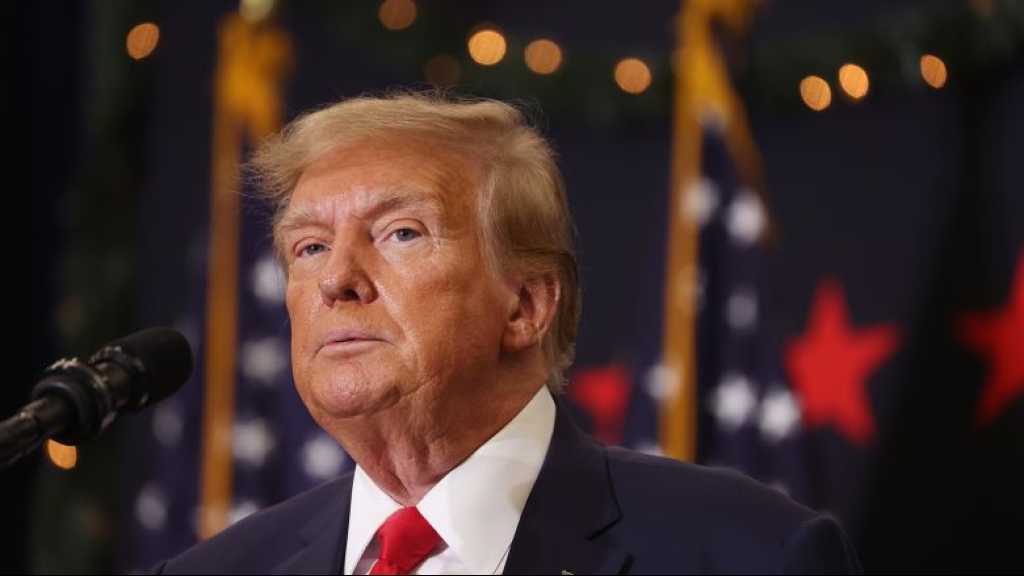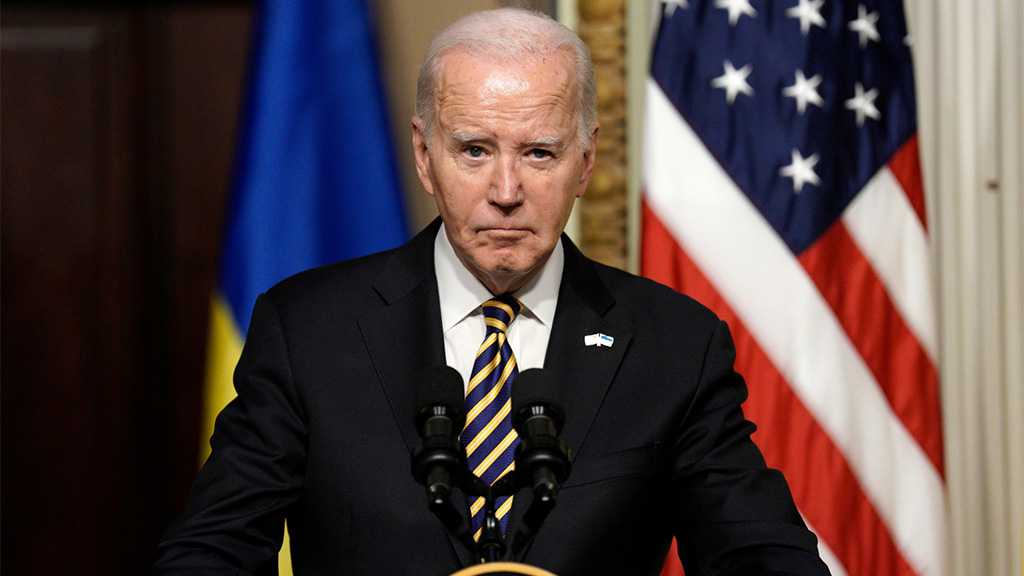
CNN: Under Shroud of Secrecy US Weapons Arrive in Yemen

By Staff, CNN
CNN has released footage showing the unloading of a variety of US-made arms – which was filmed illicitly at the offloading site – on the dock in the Yemeni port of Aden last week.
The distinctive shape of the US-made Oshkosh armored vehicle stands out, a piece of military hardware that is currently at the heart of a standoff between some American lawmakers and US President Donald Trump's administration.
Multiple witnesses said that the authorities of fugitive President Abd Rabbuh Mansour Hadi’s regime, which is backed by the Saudi-led coalition, have been arresting and questioning those they suspect of leaking it to the media, CNN reported.
CNN has identified the ship which offloaded the US weaponry in Aden last week as the Saudi-registered Bahri Hofuf. Looking at tracking data, the vessel's last recorded location was in the Saudi port of Jeddah on September 17, before it sailed to Port Sudan, arriving the following day.
After this, the boat's tracking system was switched off, before it appeared again under the cover of darkness in Aden on October 29.
Secrecy surrounds the flow of weaponry to Yemen's conflict that as of October 31 has killed more than 100,000 people since 2015, according to the Armed Conflict Location & Event Data Project.
In February, a CNN investigation revealed that Saudi Arabia and the UAE – key US allies – had transferred American-made weapons to the Takfiri al-Qaeda-linked militants, and other fighting factions in Yemen, in violation of their agreements with Washington.
Oshkosh Defense, the manufacturer of one of the armored vehicles [MRAPs] seen in the latest shipment, that the firm "strictly follows all US laws and regulations relating to export control”, CNN reported.
US lawmakers have moved to ban weapons sales to Riyadh and Abu Dhabi, passing the War Powers Resolution against a sitting President for the first time in a bid to end US military support for the Saudi-led coalition in Yemen, and also tried to sanction the Saudis for the murder of journalist Jamal Khashoggi. The War Powers Resolution was approved by the House and Senate but was vetoed by Trump in April.
Trump again invoked his veto rights in late July to block a trio of Congressional resolutions banning $8.1 billion in weapons sales to various countries, including Saudi Arabia and the UAE. The President argued that maintaining the flow of weapons to the two US allies was necessary, citing national security issues and fears of Iranian aggression.
The 2014 deal signed by the UAE with the US was worth $2.5 billion and required the delivery of 4,500 MRAPs.
Under the UAE and Saudi Arabia's arms sales agreements with the US, American-made MRAPs are considered "proprietary technology," which neither party was supposed to let out of its control.
Recipients of US weaponry are also legally obligated to adhere to end-use requirements which prohibit the transferring of any equipment to third parties without prior authorization from the US government. That authorization was never obtained.
Based on CNN, a US State Department official said that the US government takes all allegations of the misuse of American weaponry very seriously but insisted "there is currently no US prohibition on the use of US-origin MRAPs by Gulf coalition forces in Yemen." A spokesman for the Pentagon, Lt. Col Uriah L. Orland said, "We cannot comment on any potential or ongoing investigations of claims of end-use violations," but also reiterated there was currently no prohibition on the use of US MRAPs in Yemen.
Accordingly, CNN has found multiple instances this year where that weaponry was diverted, in defiance of end-user agreements.
Saudi-led coalition Col. Turki al-Maliki said "the information that the military equipment will be delivered to a third party is unfounded." He went on to say that "all military equipment is used by Saudi forces in accordance with term and conditions of Foreign Military Sales [FMS] adopted by the US government and in pursuance of the Arms Export Control Act."
What this latest Saudi delivery of American weaponry to Aden proves is US military hardware is still flowing into Yemen. No specific measures in the deal address the illicitly distributed US-made weaponry.
Comments



